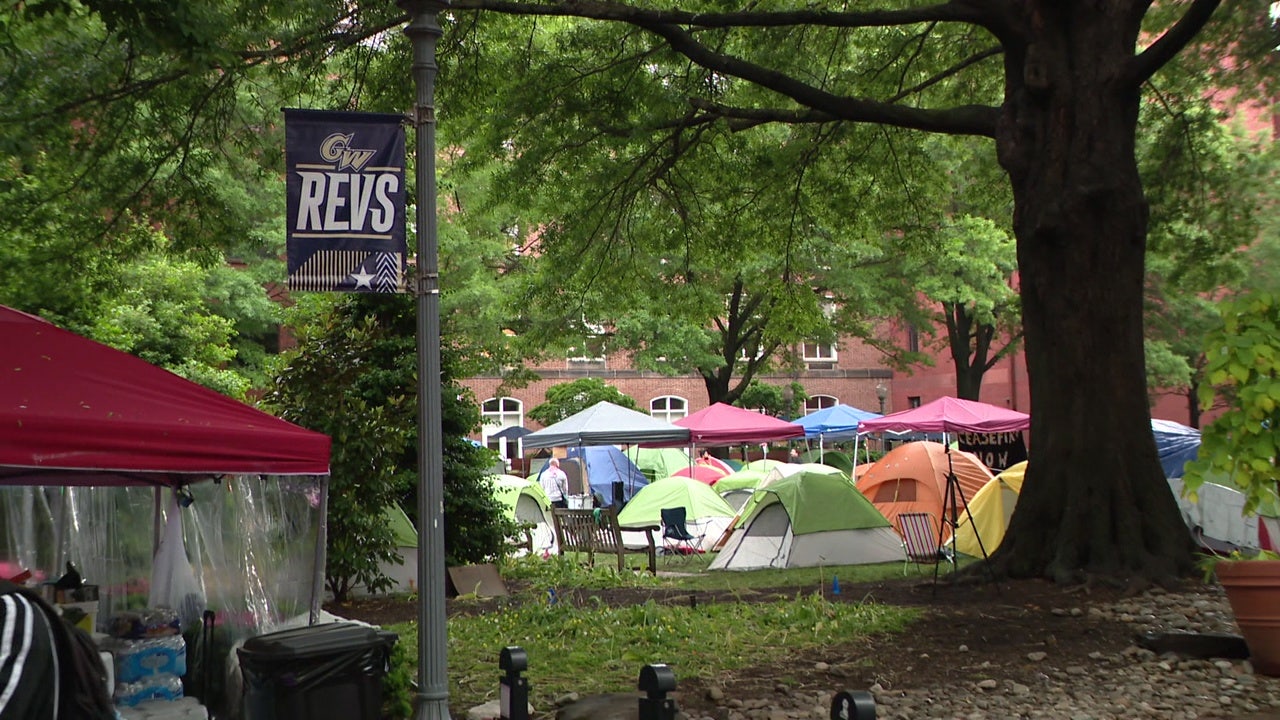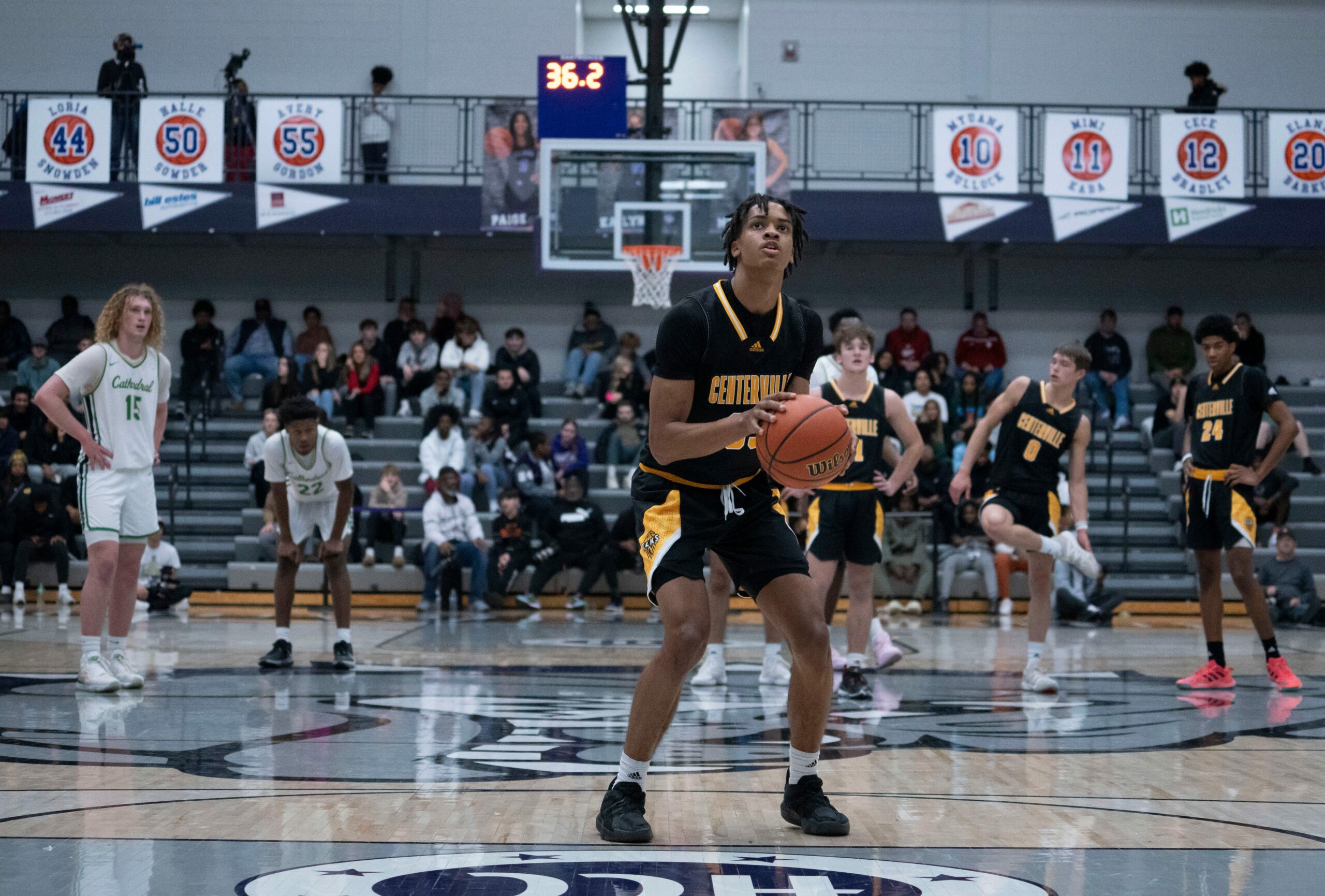Louisiana
Lawmakers advance bill to intervene in land dispute for wealthy drug distributor • Louisiana Illuminator

State lawmakers advanced a bill Tuesday that intervenes in a land dispute and threatens to block construction of an interstate power line at the behest of a small group of north Louisiana landowners, including the wealthy owner of a large pharmaceutical company that made billions during the opioid crisis.
Paul Dickson Sr. is a principal owner and former board chairman of the Shreveport-based Morris & Dickson Co., one of the largest wholesale pharmaceutical distributors in the nation. It was the target of a federal investigation that revealed one of its own agents was secretly negotiating with the company to preserve its federal license.
Senate Bill 108, sponsored by Sen. Alan Seabaugh, R-Shreveport, stands to benefit Dickson in his dispute with a Texas power company. It cleared the House Committee on Civil Law and Procedure without objection and will head to the House floor for consideration.
The bill is tailored in ways that would effectively prohibit a single business from exercising its expropriation rights, which allow governments and certain companies to force the sale of private land for public use. It’s typically used for development of a project that serves a public need, such as a new highway or, as in this case, a power line. In exchange, the owner must be paid, at minimum, fair market value for their land.
Proponents of Seabaugh’s measure tout it as a way to protect landowners from businesses and projects that don’t benefit the people of Louisiana.
“We’re here because of one project,” Seabaugh told the committee.
The project Seabaugh targets — Pattern Energy’s Southern Spirit Transmission line — would deliver electricity to the regional power grid that covers most of the state.
The Southern Spirit Transmission project is a 320-mile line that will begin at a power station in DeSoto Parish and deliver wind power from the Texas grid to a power station in Choctaw County, Mississippi, crossing through North Louisiana. Onshore wind has been the cheapest source of electricity for the past several years in the United States and around the world, according to a study by the financial firm Lazard.
Although the line would end in Mississippi, it would feed electricity into Louisiana by way of the regional Midcontinent Independent System Operator grid. The MISO grid covers most of Louisiana, and Mississippi and spans into a large swath of the Midwest and into Manitoba, Canada.
Dickson told the committee Seabaugh’s bill won’t kill Pattern Energy’s project but will merely give the landowners a better advantage in their negotiations.
“It needs to be negotiated in the private sector,” Dickson said. “It will get done well… Right now, the landowner’s hands are tied behind his back. Senate Bill 108 gives the landowner the ability to negotiate by removing the threat of expropriation.”
Pattern Energy has claimed the project will bring economic development to towns and parishes in North Louisiana, but Public Service Commissioner Foster Campbell, D-Bossier City, said he hasn’t heard from any of those local officials. Campbell is against the Pattern transmission project but has not taken a position on Seabaugh’s bill.
“I’m troubled by the way they do business,” Campbell said in a phone interview, referring to Pattern Energy. He said it has been difficult to get straight answers from the company.
Seabaugh told the committee the power line would not deliver “one watt of electricity” to Louisiana and that the company would claim lucrative state tax incentives such as the Industrial Tax Exemption Program (ITEP). When it was his turn to testify, Pattern Energy executive Adam Renz failed to give concise answers in response to Seabaugh’s accusations, neither of which were accurate.
Instead, Renz gave lengthy, detailed explanations on the concepts of inter-regional interconnection, the history of the Southern Spirit project and the geography of the MISO grid. His long discourse continued even after lawmakers specifically pointed it out, asking for shorter answers.
Louisiana legislation could jeopardize flow of power from Texas
When Renz finally did say electricity would indeed flow to Louisiana and that “we’re not using ITEP — you have my word,” half of the committee members had long ago left the room.
Pattern Energy land director Shannon Gwen and attorney Scott Keaty were more concise in their testimony. Gwen explained how the company has nearly acquired 60% of the land needed for the project and that it begins land negotiations with offers of at least 120% of market value. Keaty said he had deals worked out with the two landowners until Seabaugh filed his bill.
“We have not taken anybody’s property,” Keaty said. “We have not initiated any expropriation proceedings.”
The company has rerouted the transmission project 11 times at the request of one landowner who is still not satisfied, he said.
Even if Pattern Energy were to initiate expropriation proceedings for the land, it would have to do so through lawsuits filed in the landowner’s parish and would have to show the judge why the project is in the best interest of the public. Gwen said the company also includes value for any timber on the land and even pays the landowner’s legal fees if they hire an attorney to negotiate.
Many others testified against Seabaugh’s bill, including Public Service Commissioners Mike Francis, R-Crowley, and Davanté Lewis, D-Baton Rouge.
Lewis said the bill is a big solution for what is a small contested issue. He said it will have “significant ramifications” for improving Louisiana’s grid and signal to other companies that Louisiana will change the rules on them at the finish line.
The Louisiana-based utility Southwestern Electric Power Cooperative (SWEPCO) currently imports cheap electricity from wind turbines in Oklahoma — in the same way Louisiana would benefit from the Southern Spirit line — through the MISO grid, Lewis said.
“If Oklahoma passed this same law, it would undoubtedly raise the rates for people in Louisiana,” Lewis said.
At the end of Tuesday’s hearing, the committee members who had left the room finally returned, having missed testimony given in support of the project. Even those lawmakers who stayed and voiced some sympathy to Pattern Energy’s position were confronted with one final question from Speaker Pro Tempore Rep. Mike Johnson, R-Pineville, who had returned to his chair just before the bill’s fate was decided.
“Sen. Seabaugh, I have just one question, and I don’t think I heard it in your testimony earlier: Do you know if the governor supports or opposes your bill?” Johnson said.
Seabaugh replied that Gov. Jeff Landry “quietly supports it” but admitted he doesn’t “quite know what that means.”
“If he opposed it, he wouldn’t likely be quiet, would he?” Johnson asked.
“I think that’s probably correct,” Seabaugh said.
When committee chairman Rep. Nicholas Muscarello, R-Hammond, asked if anyone objected to moving the bill favorably to the floor, the lawmakers remained silent.
Paul Dickson Sr., who testified at Tuesday’s committee hearing, is a principal owner and former board chairman of the Shreveport-based Morris & Dickson Co., one of the largest wholesale pharmaceutical distributors in the nation and, according to Dickson, the second oldest company in Louisiana. “I ran a company that currently does $5.5 billion a year in sales,” Dickson told lawmakers. “That’s bigger than Pattern [Energy]. I know who makes decisions in companies, and the people who will decide whether or not this power line goes through Louisiana after this bill is passed will make an economic business decision.”
Dickson was president of Morris & Dickson when it mishandled more than 12,000 suspicious large orders of the highly addictive drugs oxycodone and hydrocodone during the height of the nation’s opioid crisis, according to the U.S. Drug Enforcement Agency.
Last year, the Associated Press reported on secretive negotiations between Dickson and top DEA officials. The DEA was investigating Morris & Dickson’s distribution of opioids and filed formal charges against the company in 2018 for violating the Controlled Substances Act.
Dickson had met with a DEA official, Louis Milione, on at least two occasions beginning in 2016 to negotiate a way for the company to stave off punishment and keep its distributor’s license. That following year, Milione left the DEA and received a $3 million consulting contract from Morris & Dickson.
Dickson’s company continued operating under its license for over four years after a judge recommended it be revoked in 2019. The DEA’s decision to stall on the judge’s ruling was highly unusual, according to officials quoted in the AP story. DEA Administrator Anne Milgram, a Biden appointee, rehired that same agent in 2021 as her top deputy and continued to stall on the judge’s ruling until the situation made national headlines last year. Milgram revoked the company’s license in May 2023 right after the AP reached out to her for comment on the matter.
The company didn’t stay in trouble for long. In February, the DEA announced it had negotiated a settlement with Morris & Dickson in which the company admitted all wrongdoing, promised not to break the law again and paid a $19 million penalty. In return, Morris & Dickson got its DEA license back.
Dickson also owns Sports South, one of the region’s largest firearm distributors. He is also a major Republican donor, giving $24,999 to Seabaugh and more than $40,000 to Gov. Jeff Landry over the past several years. Landry’s office didn’t respond to a request for comment on this story.
Dickson has also donated smaller amounts totaling $2,000, to Public Service Commissioner Foster Campbell, D-Bossier City, who opposes the Pattern Energy transmission line project Dickson wants to stop, but he hasn’t taken a position on Seabaugh’s bill.
GET THE MORNING HEADLINES DELIVERED TO YOUR INBOX

Louisiana
6 Most Idyllic Small Towns In Louisiana
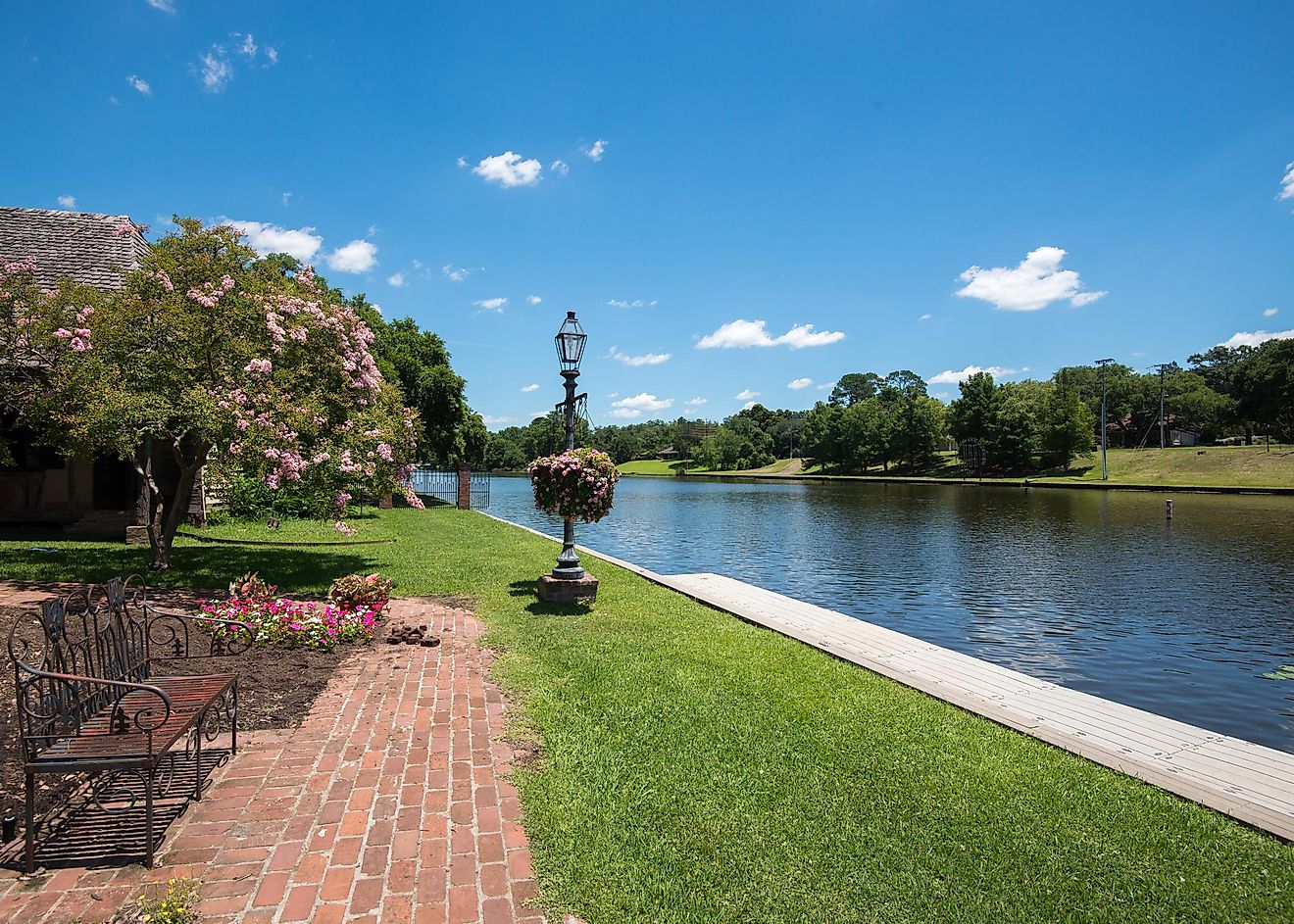
Louisiana is best known for its rollicking big city, New Orleans, but hundreds of small towns dot its varied landscape of prairies, hills, forests, Mississippi River delta, and bayous along the Gulf of Mexico. Due to the state’s unique mix of French, Spanish, English, African, Caribbean, Native American, and other cultural influences, seemingly every small town in Louisiana has a distinctive look and feel. Check out our list of six of Louisiana’s most idyllic small towns to get you started on your tour of the “Pelican State.”
Natchitoches
Natchitoches (pronounced Nack-a-tish) claims the dual titles of oldest city in Louisiana and oldest European settlement in the huge territory acquired in the Louisiana Purchase of 1803. Beautifully perched along the Red River, this parish (county) seat of about 18,000 residents has a famous Historic District that spans 33 blocks of architectural gems that now house antique shops, eateries, bed-and-breakfasts, private homes, and more. After a postcard-pretty walking tour of downtown, head downriver to Magnolia Plantation and Oakland Plantation, which explore life in both the stately plantation houses and the ramshackle slave quarters.
New Iberia
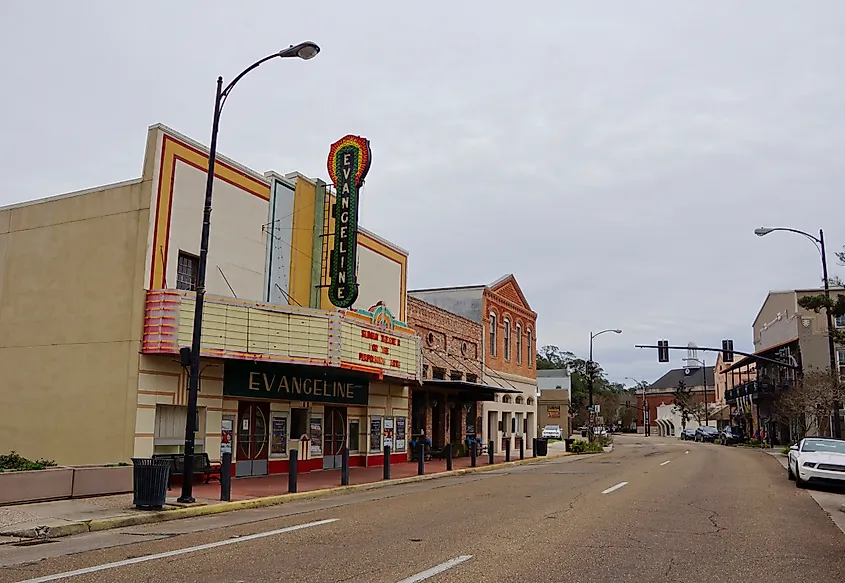
New Iberia, a town of 28,000 along Bayou Teche, is a good representation of Louisiana’s diverse cultural influences. Founded by Spaniards in 1779, New Iberia has been shaped by generations of French Acadian (Cajun), African American, Native American, and Anglo-American residents. Check out the Bayou Teche Museum to get a primer on New Iberia’s distinctive history and culture. From there, do some shopping and sightseeing in a downtown that was named a “Great American Main Street” in 2005. If you enjoy lively community festivals, come in late spring for New Iberia’s Mardi Gras celebration or in October for the World Championship Gumbo Cookoff.
St. Francisville
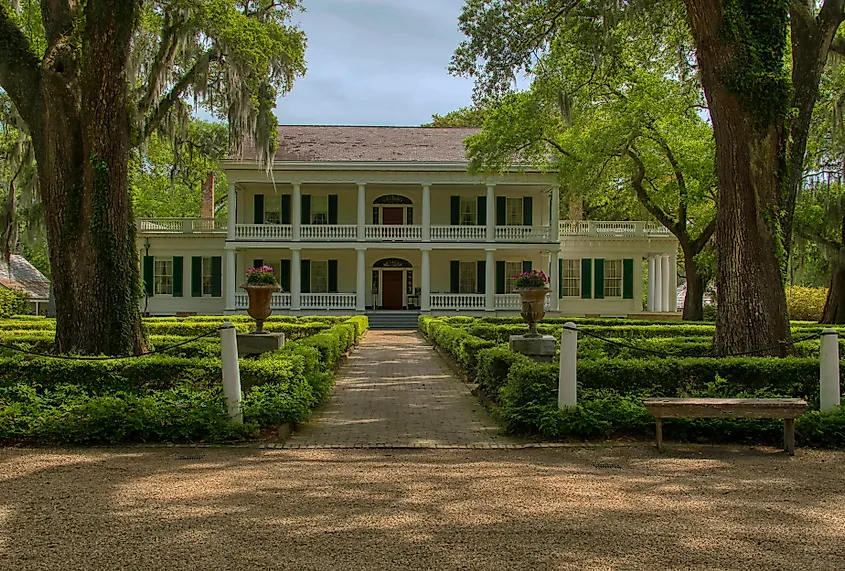
St. Francisville overlooks the Mississippi River from a long, narrow ridge, earning its reputation as “the town that is two miles long and two yards wide.” Along with offering fantastic vistas of the mighty river, this town of about 1,600 residents has a lovely downtown with numerous Victorian-era and earlier buildings. Historic highlights include the old Julius Freyhan High School and Temple Sinai, the latter representing St. Francisville’s long history of Jewish settlement. After shopping at hotspots like District Mercantile and Backwoods Gallery, enjoy a meal at Audubon Cafe or Restaurant 1796 before checking out the replica vintage steamboats docked along the river.
Abita Springs
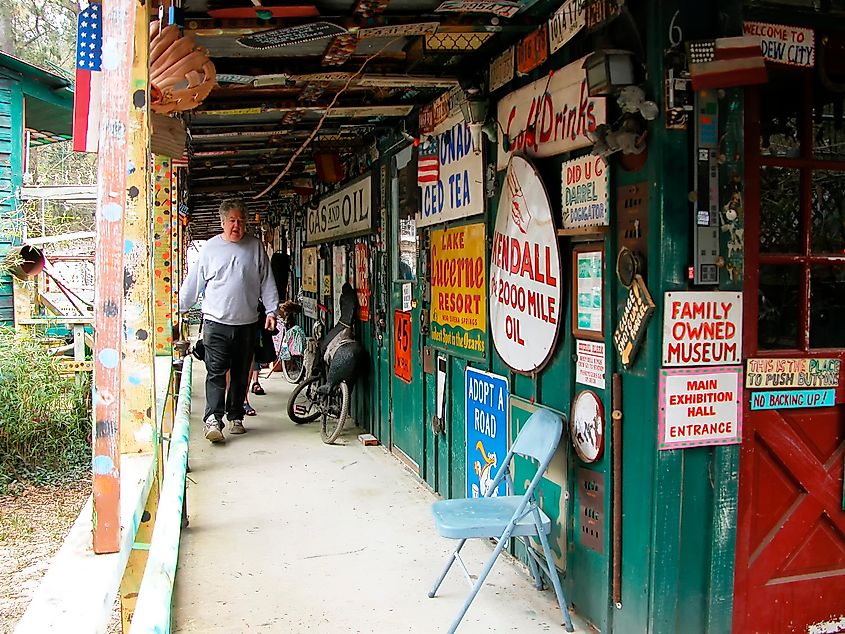
Legend says that the name Abita Springs derives from a Choctaw word for the mineral springs in this part of modern-day St. Tammany Parish, now part of the greater New Orleans metro area. Abita Springs was a popular spa resort in the late 1800s for city residents seeking fresh air and healing waters, and several of the Victorian-era health resorts and vacation homes remain to this day. Visitors still flock to this town of 2,500 to escape city life for a day or two, but now come to enjoy local craft beers, eclectic shops like the Abita Mystery House, and fun community events like the Abita Springs Opry and the weekly art and farmer’s markets.
Breaux Bridge
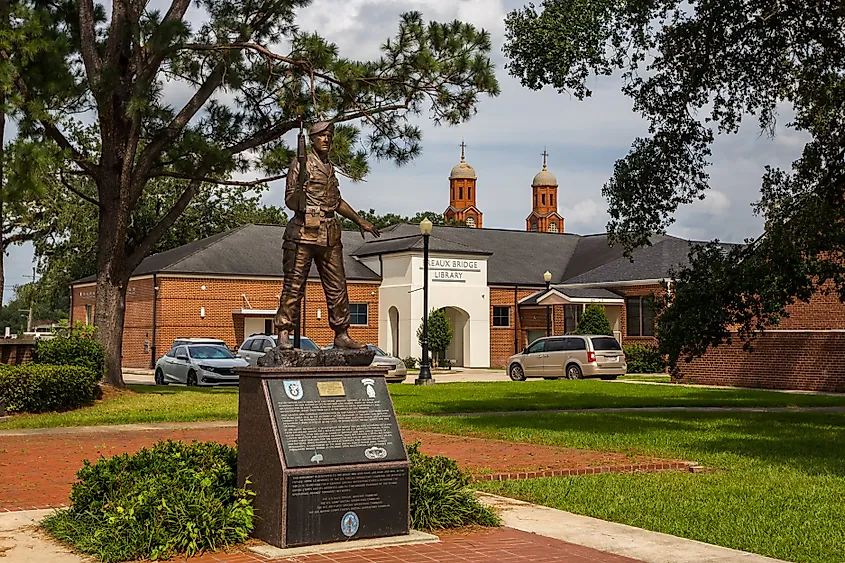
Breaux Bridge, a town of 7,500 in St. Martin Parish near the city of Lafayette, proudly proclaims itself as the “Crawfish Capital of the World.” It is said that crawfish first appeared on restaurant menus here and that Breaux Bridge is the birthplace of crawfish etouffee. The annual Breaux Bridge Crawfish Festival brings thousands of visitors to town each May, but there are plenty of reasons to visit, even if you are not a crawfish aficionado. For instance, Breaux Bridge is also famous for its lively music scene, particularly traditional Cajun and Zydeco musical styles. The walkable downtown is lined with shops and boutiques, and Bayou Teche offers boating, fishing, and sightseeing galore.
Grand Isle
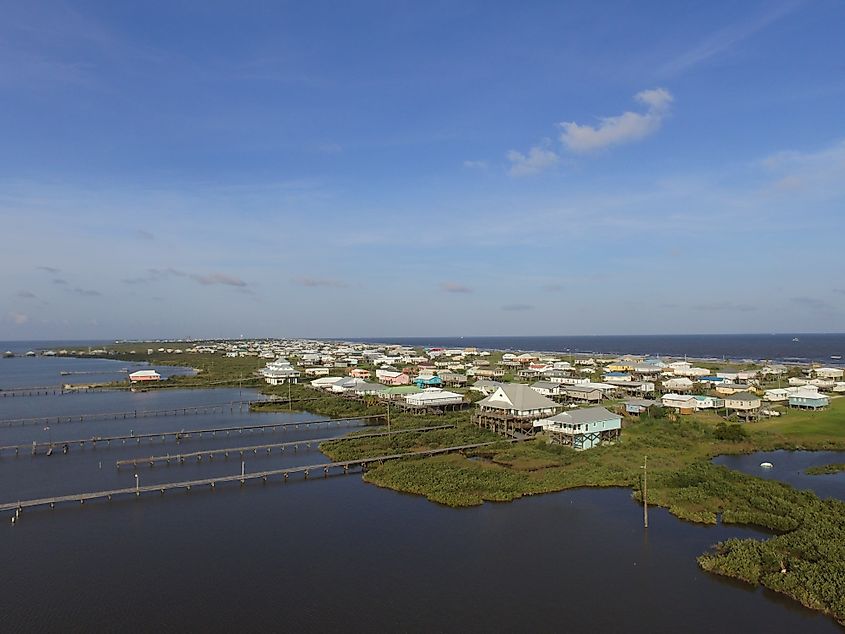
Grand Isle is the name of a Gulf Coast barrier island at the mouth of Barataria Bay as well as the town that sits on it—making it the only inhabited barrier island in the state. This exposed location means that Grand Isle gets pummeled by tropical storms and hurricanes, but the town and its 1,000 hardy residents rebuild and rejuvenate each time. So, while you will not see much historic architecture, you will find fine waterfront vacation homes and plenty of dining and shopping options. Grand Isle is renowned for its beautiful public beaches, as well as for being one of the best spots in Louisiana for birdwatching and butterfly-watching.
You are guaranteed to have a good time no matter where you visit in Louisiana—great music, fantastic food, welcoming locals, and natural wonders abound in every corner of the state. While no trip to Louisiana is complete without a stop in New Orleans, be sure to make time to get off the beaten path and explore some of the state’s many great small towns. Your own personal list of must-visit towns will grow with each return trip to the Pelican State!
Louisiana
Louisiana medical student suffers brain damage after being pushed into lake by friends, struggling in water for 20 mins

A medical student sustained severe brain injuries after allegedly being pushed into a lake by his so-called friends. Christopher Gilbert, 26, who could not swim, was reportedly pushed off the dock at Lake D’Arbonne in Farmerville, Louisiana on April 14.
The shocking incident was caught on camera. Gilbert struggled to get out of the water for 20 minutes. A woman who initially slowly entered the water backed off, realising the rescue mission was not possible. It was only ten more minutes later that a member of the public at a nearby restaurant came to the rescue and pulled Gilbert from the water.
By the time Gilbert was rushed to the hospital, he was brain dead. The rest of his organs had also begun to fail, his mother Yolanda George said. George revealed that her son spent 72 hours on a ventilator which was “dialysis for the lungs,” according to The Mirror.
‘I felt like my life had ended in that moment’
“I was devastated. I felt like my life had ended in that moment. My son is aspiring to be a medical doctor, my son is going to be a medical doctor. He got his masters last year in biological science. He’s preparing for medical school so for this to have happened to him … I was just devastated,” said George, who went to the hospital after getting a call from one of the friends.
“She told me that Chris had fallen into the lake and he had been underwater for 20 minutes or so,’ George told Fox8. “’And I was like, 20 minutes? Why was he underwater for 20 minutes?’”
“And she was just crying hysterically and he was being airlifted to Shreveport. And initially when my son got there the doctor called us in and told me that at this time he was “brain dead pretty much, and the rest of his organs were starting to fail”,” she added.
Police said Gilbert’s friend tried to brush off the incident as “horse-play,” saying he “just kind of fell face first into the water.” However, one of them later confessed that she had pushed Gilbert off the pier.
“In the legal field, we characterize things the way we see fit,” family lawyer Claudia Payne said. “Of course, they are saying horseplay. We are saying that it was a criminal intentional push into the lake.”
“To add insult to injury, after pushing him, no one from the ‘friend group’ attempted to go in after him. Instead, two brave bystanders, who have no relationship to Chris, heard commotion and retrieved his body from the lake,” Payne added in a report.
While Gilbert is still unable to speak, he has been showing cognitive responses. His lungs are reportedly functioning at 20% capacity and he remains on life support.
Gilbert’s family has now called for an arrest. “Why would you push my son in the lake knowing he couldn’t swim? ” George said.
Louisiana
Man makes ‘miracle’ recovery after allegedly being pushed into lake by friends, left underwater

SHREVEPORT, La. (KSLA/Gray News) – After being hospitalized for more than two weeks, a 26-year-old man from Louisiana is officially off life support.
Doctors described Christopher Gilbert’s survival as a “miracle” after allegedly being pushed into a lake by his friends and left underwater for nearly 10 minutes.
His family told KSLA that he will be released from the hospital soon.
Gilbert and a group of friends were at a lakefront restaurant when he ended up in the water, leaving him with significant brain damage and on life support.
Family attorney Claudia Payne said Gilbert’s friend group initially reported to police that he had fallen into the lake. However, after an investigation was conducted, it was said that he was allegedly pushed into the water by a girl in the friend group.
KSLA reported that Gilbert’s legal team is demanding an arrest to be made. They also want the restaurant owner to be held accountable for not keeping him safe.
So far, no arrests have been made and activists are demanding justice and answers.
Copyright 2024 KSLA via Gray Media Group, Inc. All rights reserved.
-

 Politics1 week ago
Politics1 week agoColumbia University’s policy-making senate votes for resolution calling to investigate school’s leadership
-

 News1 week ago
News1 week agoBoth sides prepare as Florida's six-week abortion ban is set to take effect Wednesday
-

 Politics1 week ago
Politics1 week agoGOP Rep. Bill Posey won't seek re-election, endorses former Florida Senate President as replacement
-

 World1 week ago
World1 week agoBrussels, my love? MEPs check out of Strasbourg after 5 eventful years
-

 Politics1 week ago
Politics1 week agoHouse Republicans brace for spring legislative sprint with one less GOP vote
-

 World1 week ago
World1 week agoAt least four dead in US after dozens of tornadoes rip through Oklahoma
-

 World1 week ago
World1 week agoRussian forces gained partial control of Donetsk's Ocheretyne town
-

 Politics1 week ago
Politics1 week agoAnti-Trump DA's no-show at debate leaves challenger facing off against empty podium






